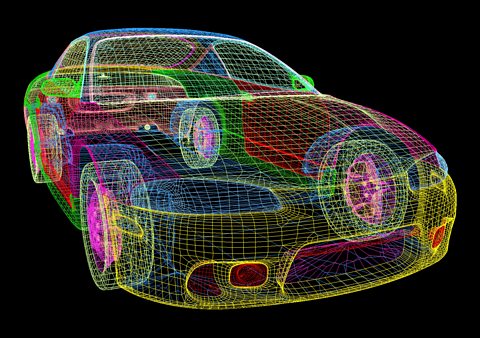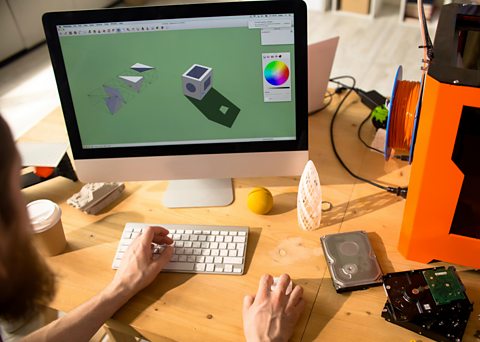Section One: Assessing design
Analysis of a brief

You must be able to demonstrate knowledge of analysing a design briefA statement of key details about a design problem and how a designer plans to address it. and how data can be gathered to help inform a specification. This includes the following: -
- gathering data
- research techniques of questionnaires and user trips
- understanding the selection of research techniques
- the role of product specification
Idea generation techniques
You must be able to identify a range of idea generation techniques and the stages involved with these techniques.
- the appropriate use of idea-generation techniques
- morphological analysis (problem solving)
- brainstorming
Modelling in the design process

A computer generated 3D model
You must be able to identify why modelling is used in the design process and how it can benefit the designer at different stages.
This includes how modelling can be used to generate and explore ideas, refine existing designs, and to demonstrate and evaluate design practicalities.
You should also understand the reasons for selecting the following type of models:-
- scale models – smaller than life-size models to demonstrate design and dimensions
- block models – non-working versions of a product typically made from clay or styrofoam
- computer-generated models – to provide detailed, virtual 3D versions of a product